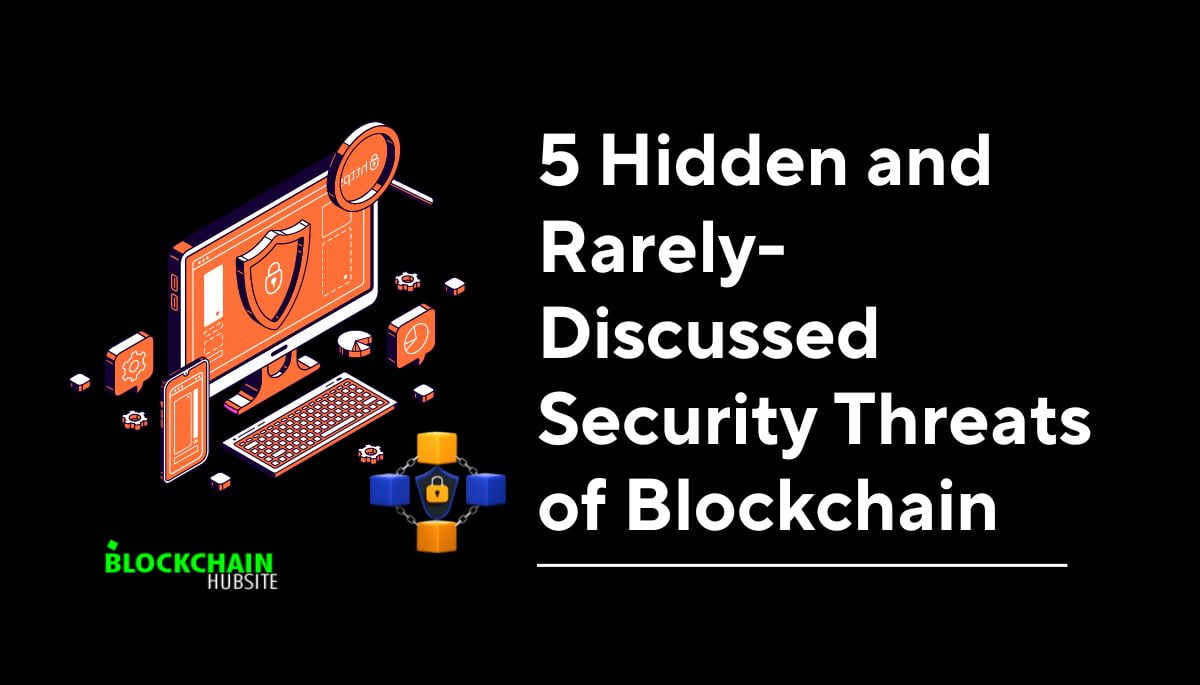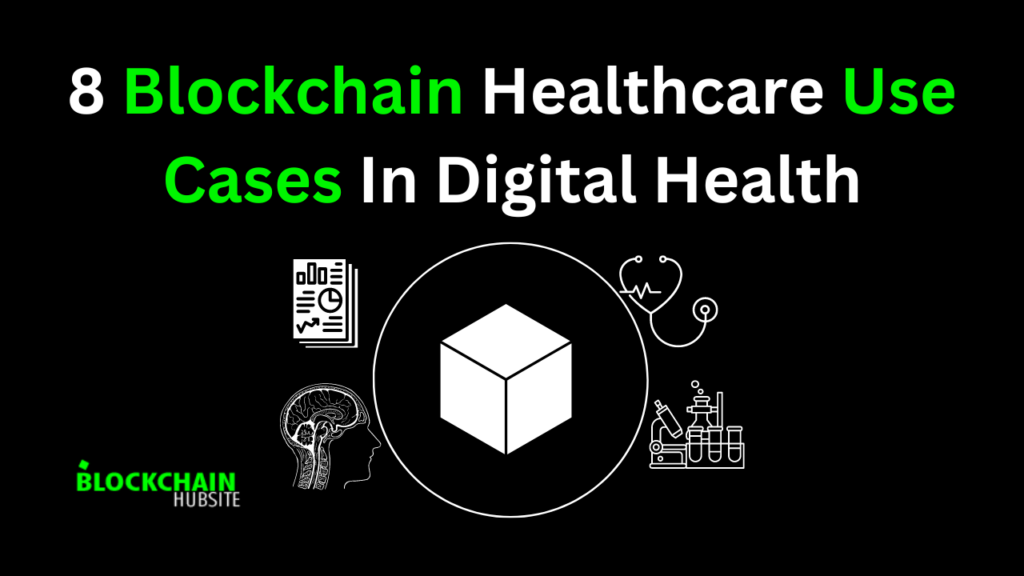
Table of Contents
Blockchain developer jobs in the USA have increased dramatically in recent years, coinciding with the growing popularity of cryptocurrencies and blockchain technology. The demand for skilled blockchain developers in the US job market is far higher than the supply due to the increasing number of firms and industries exploring decentralized solutions. With an average annual compensation of $146,250 or $70.31 per hour, blockchain developer employment has long been among the most sought-after in the United States’ technology industry.
Even though the blockchain industry is expanding exponentially, it is still considered a niche market. Building local development teams continues to be a hurdle for many US organizations when hiring skilled blockchain personnel. Despite the persistent increase in enterprise usage across industries, there is a shortage of developers with practical experience in blockchain technology.
Right now, blockchain offers enormous job chances for software developers in the US who are interested in specializing in a developing, cutting-edge industry. Blockchain developers lay the groundwork for decentralized networks and apps that enable various platforms and technologies, including digital payments, supply chain management, cryptocurrencies, and decentralized financing (DeFi). They use their expertise in data structures, programming, cryptography, peer-to-peer networking, and blockchain design to create the next generation of blockchain solutions.
Learn more about blockchain developer jobs in the US in this article. We’ll go over the duties and responsibilities, the skills and qualifications needed, the industries hiring blockchain talent, the most popular hub locations, salary trends, and how to start your career in this lucrative field.
Understanding the Role of a Blockchain Developer

A blockchain developer works on creating and maintaining applications and distributed ledgers that use blockchain technology. Blockchain coders are crucial for making decentralized networks work to their full potential as the technology spreads quickly across many fields.
Key responsibilities of a blockchain developer include:
- A blockchain developer’s job is to write code for decentralized applications (dApps) and smart contracts that work on different blockchain systems and protocols, like Ethereum, Hyperledger Fabric, R3 Corda, and more.
- Writing secure and efficient code in solidity, golang, or javascript by blockchain standards
- Integrating blockchain solutions into current infrastructures and legacy systems
- Assessing the cryptographic methods and consensus algorithms required for a specific application
- Coordinating blockchain app design choices with internal and external development teams
- Documenting, testing, monitoring, and debugging blockchain applications
- Staying up to date on changes in distributed ledger technology and business trends
Specialized technical skills are needed to do well as a blockchain coder. These include:
- Knowing about core blockchain architectures, cryptographic principles, and data structures.
- Blockchain technology’s most important protocols (e.g., Bitcoin, Ethereum, Hyperledger)
- “Smart contract” languages, such as Vyper and Solidity
- Making websites with the help of Python, JavaScript, and Node.js
- Software testing from beginning to end and sophisticated debugging
Qualified blockchain specialists are in high demand due to the exponential growth in the use of blockchain technology in many business areas, including finance, logistics, operations, and transactions. The ability to work as a blockchain developer is quickly becoming necessary in the increasingly decentralized technology industry.
Job Market Overview
There is a strong and encouraging job market for blockchain developers in the United States. Blockchain technology has become very popular, and businesses in many fields are constantly looking for skilled people to work on blockchain projects. Here are some essential facts about the job market currently:
Growing Demand: In the past several years, there has been a meteoric rise in the need for blockchain developers. The number of job postings mentioning blockchain technology has exploded, increasing by more than 500%. This expansion aligns with the growing interest in non-fungible assets (NFTs) and decentralized finance (DeFi).
Salaries: Blockchain developers often have a better wage than other IT jobs. In the United States, a blockchain engineer can expect to earn an average of about $146,2502 annually. Salaries for experienced developers are close to $200,000 in some places.
Proficiency in Solidity, JavaScript, and Python are essential skills for blockchain developers. They build decentralized apps, execute smart contracts, and make solutions that run on the blockchain.
Industries:Healthcare, logistics, supply chain management, and financial services are just a few industries impacted by blockchain technology. Businesses are looking into blockchain technologies to boost productivity, cut costs, and increase security.
Geographic Variation: The location of an employee can affect their pay. Blockchain developers, for instance, can make about $175,000 in Florida and Georgia. But in Virginia, the average salary is $107,0204.
The outlook for blockchain developers is bright, with an 11% increase in employment expected between 2019 and 2029. The long-term picture is still shining, even though the market can sometimes be unpredictable.
key cities or regions with high demand for blockchain talent.
San Jose – Sunnyvale – Santa Clara, CA: Located in Silicon Valley, this area is home to numerous tech enterprises and startups. Because of the concentration of tech enterprises, there is a significant demand for blockchain engineers in this area.
San Francisco-Oakland-Hayward, CA: There is a robust blockchain community in San Francisco, Oakland, and Hayward, California, another tech hub. This is the home base for cryptocurrency companies like Ripple and Coinbase.
New York-Newark-Jersey City, NY-NJ-PA: New York City is becoming more interested in blockchain technology due to its status as a significant financial center. Numerous banks are looking into its potential uses.
Austin and Round Rock, TX: Austin is a city in Texas famous for its IT industry and entrepreneurial vibe. Blockchain startups and companies are actively recruiting developers.
Seattle-Tacoma-Bellevue, WA: With companies like Microsoft and Amazon, Seattle has a robust tech environment. Both well-established businesses and new ventures are actively seeking blockchain developers.
Chicago, Naperville, Elgin, IL, IN, WI: There is a growing blockchain community in Chicago, and businesses are looking into how it can be used in banking, supply chain, and other areas.
Denver-Aurora-Lakewood, CO: Denver is emerging as a blockchain hotspot, with firms and organizations concentrating on decentralized technologies.
Washington-Arlington-Alexandria, DC-VA-MD-WV: Like the surrounding areas of Washington, Arlington, Alexandria, Fairfax, Virginia, Maryland, and West Virginia, the nation’s capital is exploring blockchain technology for potential use in governance and policy making.
Boston-Cambridge-Newton, MA-NH: Boston has a strong tech and academic presence, making it an appealing destination for blockchain professionals.
Los Angeles-Long Beach-Anaheim, CA: The LA region is home to several businesses investigating blockchain technologies, including finance, healthcare, and entertainment.
Skills and Qualifications Required for Blockchain Developers
Designing, constructing, and maintaining decentralized networks and apps requires a varied yet specialized skill set from aspiring blockchain developers. Some significant technical abilities and qualifications include the following:
Programming: Expert coding skills are essential. Develop your Java, Python, C++, Go Lang, or JavaScript skills if you want to build blockchain logic. It would be advantageous if you knew about Web3.js, Hyperledger Fabric, and Truffle, among others.
Solidity: A popular programming language for creating Ethereum smart contracts. Tokenized systems and decentralized applications (dApps) require familiarity with Solidity. It is preferred if you are familiar with alternative languages such as Vyper.
Smart Contracts: These are necessary for blockchain developers to store business logic and programmatic contracts that run trades, transfers, and distributions on the blockchain. Analytical thinking is required to guarantee accuracy and safety.
Consensus Protocols: Knowledge of the consensus methods that support transaction validation, including proof-of-work and proof-of-stake, is essential for consensus protocols. The capacity to assess the relative merits of decentralization, scalability, and finality.
Cryptography: The foundation for safeguarding distributed ledgers is cryptography, which includes understanding cryptographic methods (encryption schemes, hashes), zero-knowledge proofs, and fundamental distribution mechanisms. A solid understanding of mathematics is valuable.
Decentralized Application Development (dApp): Skill in front-end web development, including HTML, CSS, JavaScript (React JS, AngularJS), and frameworks (Truffle, OpenZeppelin, etc.) is necessary for designing user-friendly decentralized applications.
Skills like creativity, communication, teamwork, and analytical thinking are just as necessary in the workplace as technical expertise. A solid drive to keep learning and using cutting-edge blockchain innovations can significantly improve your chances of advancing in your job.
Job Opportunities For Blockchain Developers In USA
As the ecosystem grows, many new job possibilities are opening up for qualified blockchain experts. Listed below are some of the most exciting positions in the blockchain industry, along with the companies that are currently recruiting for them:
1. Smart Contract Developer
- Role: On blockchain systems such as Ethereum, smart contract developers construct contracts that may execute themselves. The use of these contracts streamlines operations, makes agreements binding, and gets rid of intermediaries.
- Skills Needed: Knowledge of blockchain architecture, familiarity with decentralized apps (dApps), and competency in Ethereum’s programming language, Solidity, are required.
- Companies Hiring: Search for openings at IBM, ConsenSys, and Chainlink, among others.
2. Blockchain Engineer
- Role: Blockchain engineers design and develop blockchain solutions. They focus on improving network scalability, security protocols, and techniques for reaching consensus.
- Required Skill Set: Proficient in C++, Python, or Go; familiarity with cryptography; and prior work with blockchain frameworks.
- Companies Hiring: Look at job opportunities with Coinbase, Microsoft, and Ripple.
3. dApp Developer (Decentralized Application Developer)
- Role: The role of the dApp developer (Decentralized Application Developer) is to create blockchain-based applications. These applications can be used in various fields, including supply chain management, gambling, and banking.
- Skills Needed: Strong web programming skills (HTML, CSS, JavaScript), familiarity with blockchain platforms, and front-end and back-end development expertise are required.
- Companies Hiring: Check out opportunities at Binance, Truffle, and Consensys.
4. Blockchain Consultant
- Role:Blockchain consultants assist firms with blockchain adoption, use cases, and implementation techniques.
- Skills Needed: The ideal applicant will be proficient in blockchain technology, have excellent communication and interpersonal skills, and be able to understand and evaluate complex business requirements.
- Companies Hiring: Consulting jobs are available at Deloitte, Accenture, and PwC, among others.
5. Blockchain Researcher
- Role: Blockchain researchers investigate novel protocols, scalability issues, and consensus techniques. The development of blockchain technology benefits from their efforts.
- Skills Needed: Skills required for blockchain researchers are proficiency in research methods, understanding networked systems, and reading academic journals and books.
- Companies Hiring: Consider applying for a research position at the Ethereum Foundation, Stanford Blockchain Research Center, or the MIT Media Lab.
6. Blockchain Startups and Industries
- Startups: Make sure to stay updated on new blockchain startups. They frequently provide intriguing positions and chances to participate in innovative projects.
- Industries: Explore many industries, including healthcare, real estate, supply chain management, and finance. A large number of businesses in these industries are already using blockchain technology.
Networking and Building Your Profile
Technical skills are essential for becoming a good blockchain developer, but building your brand and connecting with the right communities is even more important for job success.
Attending blockchain-related events and online forums is a great way to stay up-to-date on the latest developments, find new employment opportunities, get advice from industry experts, and meet prospective business partners. You may discover blockchain-related organizations on meetup.com, blockchain-expo.com, and blockchain-council.org, among others. You may meet other developers at conferences such as Blockchain Futurist, Global Blockchain Congress, and Blockchain Expo.
Improving your online profile on professional platforms such as LinkedIn and GitHub can significantly enhance your chances of getting a job. These tips will help you make a complete profile for a blockchain developer:
- Create an attention-grabbing LinkedIn profile summary and headline showcasing your blockchain-related expertise, accomplishments, languages, and protocols.
- Use your GitHub accounts to highlight important blockchain projects, code samples, and apps.
- Remember to highlight and explain your role in developing decentralized apps and smart contracts for clients or hackathons.
- Show your blockchain training credentials and awards to showcase your practical experience.
- Share your knowledge through publishing thought leadership pieces and technical articles.
- Participate actively in LinkedIn Groups like Blockchain Developer Community to share insights
You can significantly enhance your brand, get job offers from advanced blockchain organizations, or get freelance work by strategically networking at industry events and on online platforms and creating an exceptional developer profile.
Challenges and Trends

Despite the widespread adoption of blockchain technology and its revolutionary effects on trust, transparency, and decentralization, the developers who create these systems face several technological obstacles.
Scalability: Because of blockchain’s fundamental design limitations, it is still challenging to provide higher transaction throughput and reduced latency according to business requirements. Maintaining security and cost-effectiveness while assessing alternatives like layer 2 solutions, sharding, state channels, and off-chain transactions is a continuing problem.
Interoperability: Creating interoperable systems that allow for the movement of assets and communication across several blockchain networks, such as Bitcoin and Ethereum, is a challenging engineering task. Developers must have various consensus processes and types of governance fully grasped.
Adoption: A combination of developer and enterprise-level expertise is required to bring blockchain ideas from the prototype stage to a business-ready solution that works seamlessly with existing corporate systems.
Security: It is crucial to protect public blockchains that handle valuable transactions from vulnerabilities like 51% assaults and economic failures by conducting thorough testing and implementing infrastructure safeguards.
Emerging Trends in Blockchain
1. Defi (Decentralized Finance):
- DeFi platforms offer financial services without intermediaries.
- The use of decentralized systems for borrowing money, trading, and farming yields is growing in popularity.
- DeFi projects create job opportunities in development, auditing, and governance.
2. NFTs (Non-Fungible Tokens):
- NFTs represent unique digital assets (art, music, collectibles) on the blockchain.
- They have disrupted the art world and entertainment industry.
- NFT marketplaces, creators, and curators are in demand.
3. Enterprise Blockchain Adoption:
- Companies are exploring private and permissioned blockchains for supply chain management, identity verification, and data sharing.
- Enterprise blockchain framework developers (such as those with experience in Hyperledger Fabric) are in high demand.
4. Central Bank Digital Currencies (CBDCs):
- Governments are exploring CBDCs for efficient payments and financial inclusion.
- CBDC development and integration require blockchain expertise.
5. AI-Enabled Blockchain:
- Combining AI and blockchain can enhance data privacy, security, and analytics.
- Developers with expertise in both fields will be valuable.
Conclusion
Utilizing blockchain technology and cryptocurrencies is revolutionizing various businesses by enhancing transparency, security, and efficiency. Blockchain developer employment opportunities in the US will only increase due to the increasing number of organizations utilizing decentralized solutions.
Blockchain development allows issue solvers to create creative frameworks for the web3, the next generation of the internet, already regarded as one of the most promising and forward-thinking digital job pathways.
Every day, people with expertise in cryptography, mathematics, programming, and teamwork put their knowledge to use building blockchain platforms and decentralized apps that run on smart contracts.
Even though blockchain technology is in its infancy, large financial institutions, insurance companies, and supply chain networks are accelerating their investments in blockchain teams. There is a much larger demand for skill in the US than available talent.
Crypto native companies and legacy organizations provide intriguing job prospects for those who invest in understanding the ins and outs of significant protocols like Hyperledger and Ethereum. Maintaining current knowledge of the changing environment and working with stakeholder communities will open up new possibilities.
Finally, for those looking for a career in the United States, blockchain developer jobs provide exciting opportunities to work on cutting-edge technology while also receiving competitive compensation. As the decentralization wave affects more industries in the next decade, developers who upskill and position themselves early can take on leadership responsibilities.
FAQs
1. Is blockchain developer in demand in USA?
Since blockchain technology is gaining popularity in China and the United States, developers with expertise in the field are in great demand. Many American businesses are starting to use blockchain technology, particularly in the banking, healthcare, and logistics sectors.
2. What is the salary of a blockchain developer in us?
For blockchain developers in the US, the average yearly starting pay is about $108,607. Including additional cash compensation, the average total compensation is around $115,605. Keep in mind that salaries can vary based on factors such as experience, location, and company size.
3. Which country is good for blockchain developer?
Singapore has taken the lead in adopting blockchain technology among the world’s most progressive nations. Thanks to the government’s massive investments in blockchain research and development, Singapore has become a center of innovation and advancement.
4. Which developer has highest salary in US?
With a salary range of $153,750 to $180,500, cloud architects earn more than any other developer position outside of the C-suite in the US. Expert cloud architects are in great demand as they steer digital transformation initiatives.




